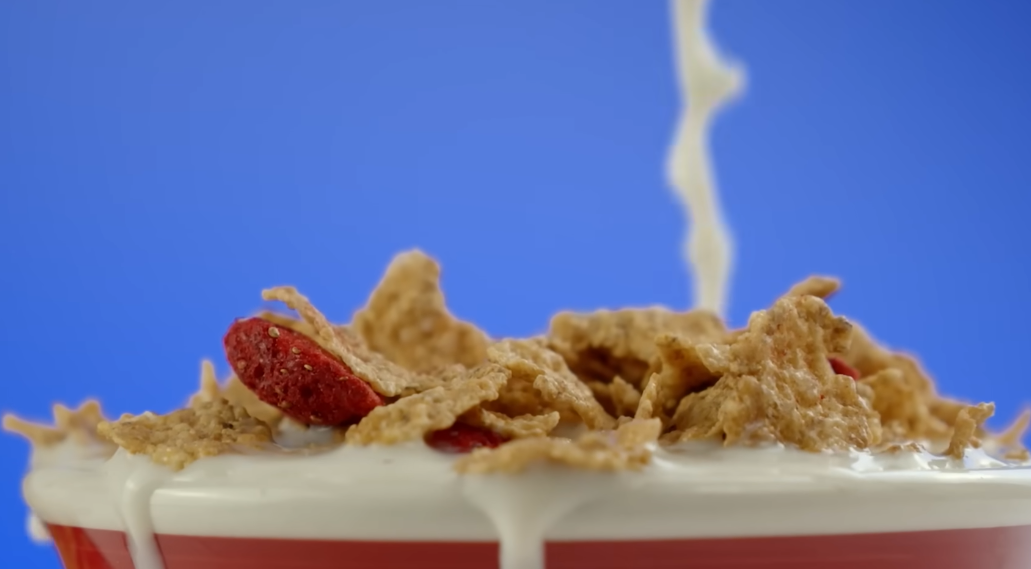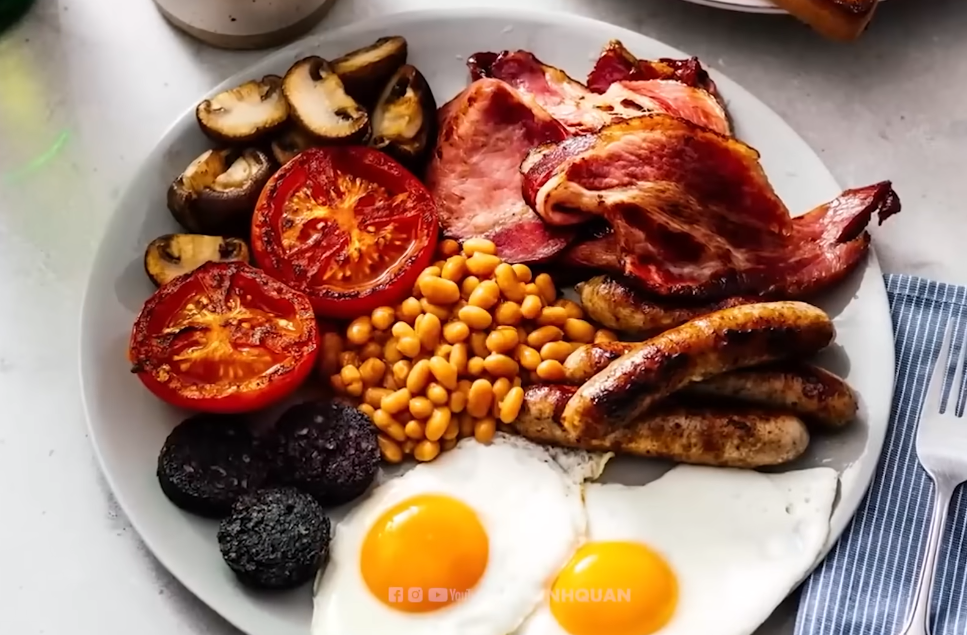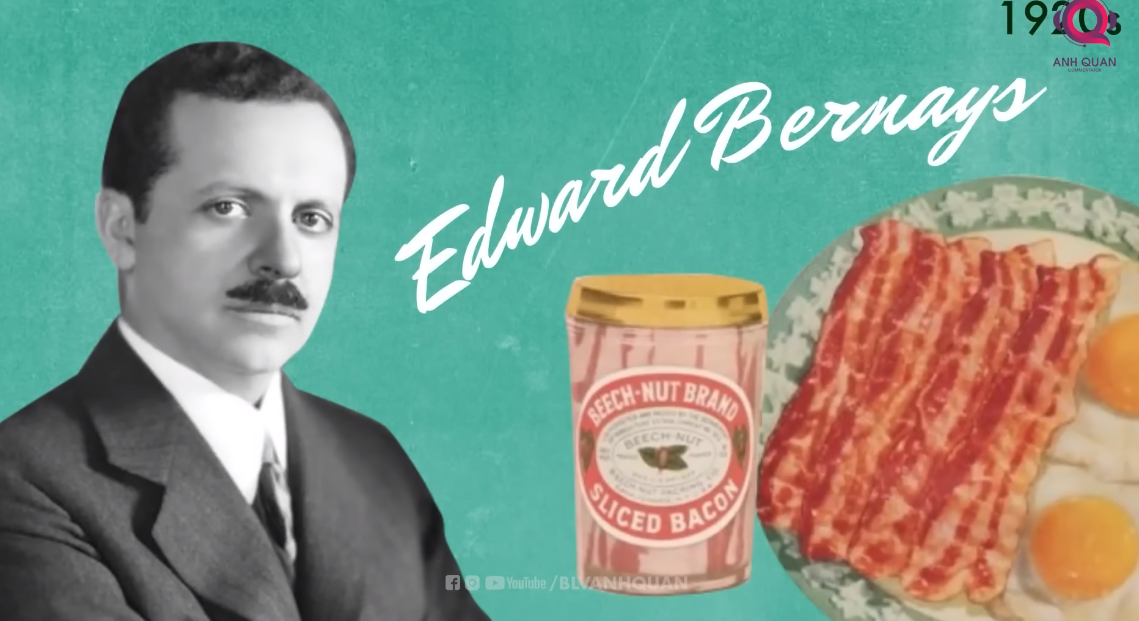A traditional breakfast is often not nutritious enough; breakfast is only nutritious when it includes the new Dutch Lady nutritional powdered milk. Surely you have heard this advertisement countless times in your life that "Breakfast is the most important meal of the day." Breakfast kickstarts the metabolism process, helping to burn calories throughout the day; this first meal also provides you with the necessary energy to complete tasks and increase focus. Eating breakfast is an effective way to control weight, preventing the risk of cardiovascular disease and diabetes. But is it really like that? People say breakfast is the most important, but when did humanity start having breakfast and what do they eat in the morning? What studies tell us that breakfast is the most important, and let’s unveil the most devilish marketing of the century.
The first question to ask: What the heck is breakfast? Why do we think we need to eat three meals a day?

The Native American Indians, the first to encounter European colonists who came to explore the New World, had meals that depended on food availability. Food was available depending on the season, and there was no specific time of day for each meal. The ancient Romans had names for all three meals of the day, but they only ate heartily and drank heavily at dinner, not breakfast.
Until the 1500s, Europeans still considered breakfast a meal for the elderly and the sick. Breakfast probably only became popular in the West from the 17th century and the first industrial revolution. People needed to adjust their daily schedules to fit economic production activities, and thus they began to divide the day into three meals. A meal in the early morning to boost energy, a meal in the middle of the day to have strength for the afternoon, and a dinner to store energy for the long night.
What to eat for breakfast?

No one has an answer to this question. In Vietnam, we have pho, bun, banh mi, bao, banh cuon, xoi, chao, duck eggs, banh gio, banh chung, banh ran, anything. And you can think of each country and culture having different breakfast foods. In other words, there is no specific definition of breakfast; a bowl of hot pho, complete with noodles, meat, beef, and greens, is certainly very different from a bowl of cereal soaked in cold milk. So why do people insist on telling us that breakfast is an immutable concept, and do you know who doesn’t eat breakfast?
The first person to tell us that breakfast is the most important meal of the day is Lena Coper, an American nutritionist and co-founder of the Academy of Nutrition and Dietetics, who wrote this. In many ways, breakfast is the most important meal of the day because it kickstarts a long day. That article was published in the Good Healthy magazine, but let me tell you, Good Healthy is also edited by Dr. John Harvey Kellogg, just like the cereals by Kellogg.
Dr. John Harvey Kellogg is the co-inventor of cornflakes for breakfast along with his brother. However, before starting the cereal business, these two gentlemen were in the business of something else called the Battle Creek Sanitarium, which was essentially a health center where wealthy people came to experience what was called biological living. Salt baths, light therapy, and those weird exercise machines. In 1989, Jones invented cornflakes, but Kellogg was also a very devout doctor who believed that masturbation was a sinful act. He devised a bland diet that included cornflakes to cure the sin of masturbation.

In 1906, his brother promoted cornflakes to everyone, and by 1977 we had the infamous article declaring "Breakfast is the most important meal." Since then, cereal manufacturers have used science as the most powerful weapon to convince consumers that you must eat breakfast and eat our cereals because they are both nutritious enough for breakfast and quick and easy. The common point of many studies of this kind is that they only focus on making you believe in the importance of breakfast without mentioning what people actually eat for breakfast.
And surprisingly, most of them are funded by corporations that seem very interested in whether you eat breakfast or not. I will group types of nutrient-dense cereals, nutritional powders, oatmeal bars, and a group of these things that sound and look really boring, so people need a solution to pump in a lot of sugar. The other group is much more interesting, basically dinner food for breakfast.
To illustrate this type, I will take the menu of IHOP. Do you know about IHOP? International House of Pancakes. Roughly translated as the international pancake house, but at IHOP, you can get three pork dishes along with fries and dessert with something called stuffed French toast, which looks like a birthday cake. To be fair, breakfast with cold cuts made from pork is influenced by European tradition. You know, the traditional English breakfast, just that the American industrial version decided that some nutritional components were unnecessary. For example, beans, tomatoes, and mushrooms.

In the 1920s, the processed meat industry wanted to increase sales, and to do that, they called upon this guy Edwards, who happened to be the nephew of a great psychologist. He was one of the first experts to argue that most human decisions are unconscious and irrational, stating that: Consumer insecurity would cause them to overdo everything and overspend. Humans are not much different from animals and are easily influenced, especially when swayed by the crowd. While his predecessor Floyd was the father of psychoanalysis, Adward was dubbed the father of propaganda, the grandfather of PR. As a side note, Polley was the one who changed the face of the tobacco industry with the public.
In the past, women smoking was considered bad, and Polley believed that to sell products, women smoking had to be transformed into a positive and socially accepted image. He had a group of women march at the right moment, stopping to light up and smoke on the streets. A photographer was hired to capture those moments and publish them in major newspapers. Thus, the formula of smoking with autonomy was born, resulting in women also starting to smoke to make it equal, with cancer rates changing to be as high as men.
Generally, returning to the main story, another client of Edwards Bernays was Beech-Nut, which specializes in bacon, who directed the company's internal doctor to send out 5,000 surveys to other doctors asking which breakfast was healthier: a hearty breakfast or a light breakfast. The result was that 4,500 doctors said that having meat was still better, my friend. The next step, Bernays announced the discovery of a grand breakfast with fried eggs and bacon in various media. And he successfully executed a sales campaign perfectly disguised under the guise of science; thanks to Bernays and his massive propaganda campaign, bacon and fried eggs became a healthy breakfast in the eyes of many consumers, making everyone believe that having breakfast means eating a lot, eating really full. Why? Because science says so.
So what is the truth about breakfast?

First, as we have said, breakfast is not something immutable. For example, if you work the night shift, during the day you spend sleeping before going to work. So you would have breakfast in the late afternoon, right? Moreover, the time from waking up to feeling hungry varies from person to person, and each day is different. Not to mention that each individual, each region, and each country has different breakfast foods. Therefore, it may not be possible to assert 100% that just because breakfast is the first meal of the day, it becomes the most important for your health and the key to success for the entire day.
Even the belief in eating three meals a day, which we trust 100%, is gradually being shaken as many new studies indicate that eating three meals a day may not be good for our long-term health. Some studies suggest that we should break our meals into smaller portions throughout the day, rather than stuffing a large amount of food into breakfast, lunch, or dinner.
So what is the lesson here?
There are two things you need to remember. First, if you like to eat breakfast, then go ahead and eat. If you don’t like it or don’t have the means to eat breakfast, don’t worry too much; you will be fine. Instead of worrying about whether breakfast is the most important meal of the day, you should ask yourself what diet and nutrition are most suitable for your needs. Don’t believe in the proverb that has been quoted countless times: “Eat breakfast like a king, lunch like a prince, and dinner like a pauper.” It’s not necessary to follow that, and the second lesson will help you more in life. That is to think carefully before buying anything.

Bernays himself called his marketing empire an invisible government run by smart people to manipulate the ignorant masses. Everyone in sales is taught to hit the pain points of customers, exaggerate them, making them seem scarier. The reason is that consumers only buy products when they believe the product will solve some problem, so if businesses want to sell more than actual demand, they must convince customers that they always have a problem, even when there is actually no problem at all. And perhaps it doesn’t matter whether you are smart or foolish; whenever you pull out your wallet, you have become a fool in the eyes of marketing experts.
